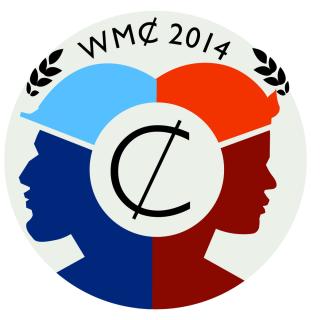
Phil Tiemeyer on Male Flight Attendants and Sexuality in the Workplace
Today’s guest discusses the history of sexuality in the workplace through the lens of male flight attendants. We speak with Phil Tiemeyer about the shifts and changes in the airline industry across the 20th century. Phil steers us through this history and reveals the importance and difficulty of braiding together race, gender, and sexuality in a study of the labor and capitalism. Phil Tiemeyer is Associate Professor of History at Philadelphia University. He is author of Plane Queer: Labor, Sexuality, and AIDS in the History of Male Flight Attendants. You can read more about his work here.
1 Syys 201537min

Live Show: Who Makes Cents with Belabored
In July, we joined our friends from Dissent magazine's Belabored podcast to discuss the history of capitalism and how journalists and academics writing about labor and business can work together. Listen to the live recording of our show at 61 Local in Brooklyn, New York!
1 Elo 20151h 18min

Suzanna Reiss on Drug Control, Coca-Cola, and Pharmaceuticals
Today’s guest discusses the history of the coca leaf and the U.S. drug control regime. Amongst other topics, we discuss the importance of coca to both Coca-Cola and Merck and the pharmaceutical industry. For Suzanna Reiss, this provides a way to interpret the history of capitalism across the mid-twentieth century and after. Suzanna Reiss is Associate Professor of History at the University of Hawai’i at Mānoa. She is author of We Sell Drugs: The Alchemy of US Empire. You can read more about her work here. For our New York area listeners, we will be having a live conversation with our friends from Dissent Magazine’s Belabored Podcast. On July 7th at 7 PM at 61 Local in Brooklyn (61 Bergen St.) we’ll be speaking with Belabored hosts Sarah Jaffe and Michelle Chen about the histories of labor and capitalism.
1 Heinä 201541min

Jenifer Van Vleck on Empire of the Air
Today's guest discusses the history of aviation and how this provides a lens to interpret the history of capitalism and U.S. foreign relations across the twentieth century. Amongst other topics, Jenifer Van Vleck tells us how the airline industry helped solve various political and logistical challenges for the U.S. government during World War II and how the airlines relied on the government and vice-versa. Jenifer Van Vleck is Assistant Professor of History and American Studies at Yale University. She is author of Empire of the Air: Aviation and the American Ascendancy. You can read more about her work here.
3 Kesä 201534min

Deb Cowen on the Deadly Life of Logistics
Our guest today tells us that the seemingly straightforward field of logistics lies at the heart of contemporary globalization, imperialism, and economic inequality. Listen to Deb Cowen discuss how the field of logistics reshaped global capitalism, undermined worker power, and even transformed how we think about life and death.
1 Touko 201533min

Kim Phillips-Fein on the businessmen's crusade against the New Deal
Kim Phillips-Fein discusses her book Invisible Hands: The Businessmen's Crusade Against the New Deal. Today we'll focus on the history of resistance to the New Deal. Kim Phillips-Fein details how many of the most prominent elites had their ideas and practices shaped by groups that were part of organized resistance to the New Deal. She argues that this history helps revise common understandings of the rise of conservatism in the 1970s and after.
1 Huhti 201532min

Thomas Palley on the Fed and Shared Prosperity
Ever wonder what the Fed does and why? How are interest rates connected to how hard it is for you to find a job? We chat with economist Thomas Palley about how the Fed is a political institution that has betrayed its mandate to provide the highest possible rates of employment to American workers since the 1970s.
1 Maalis 201532min

Christina Hanhardt on Gay Neighborhoods and Violence
Christina Hanhardt discusses her book Safe Space: Gay Neighborhood History and the Politics of Violence. Today we’ll focus on how the history of quality of life policing connects to the history of gay neighborhood politics. By looking at the gay neighborhoods in San Francisco and New York City, Christina Hanhardt will also shed light on what focusing on real estate, housing, violence, and the politics of place have to do with the history of capitalism.
7 Tammi 201537min





















